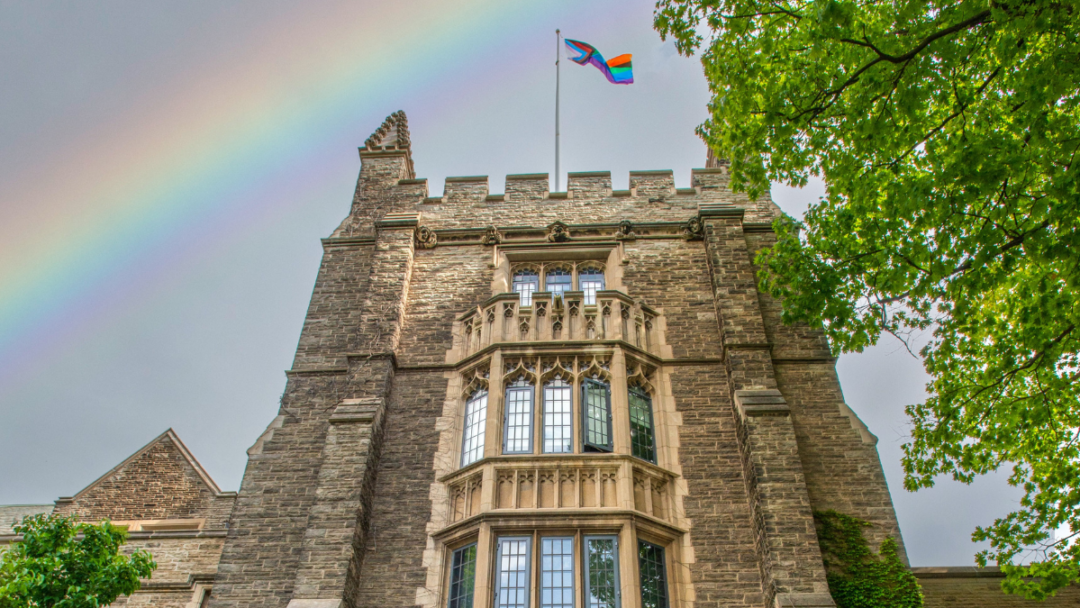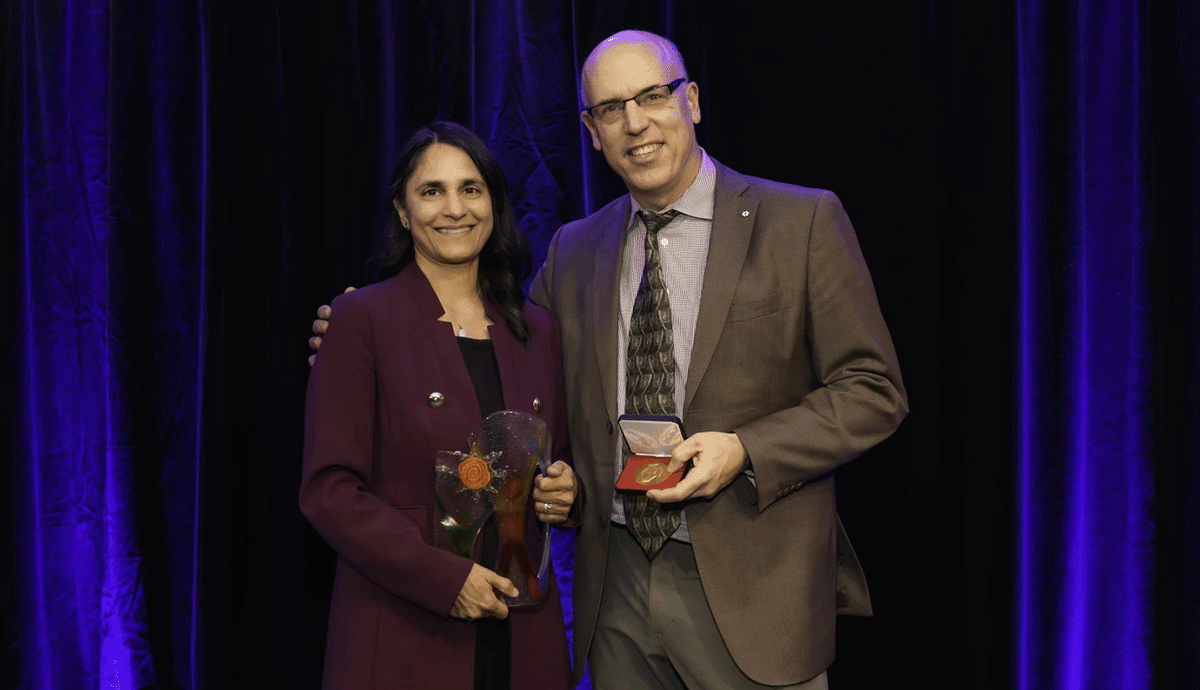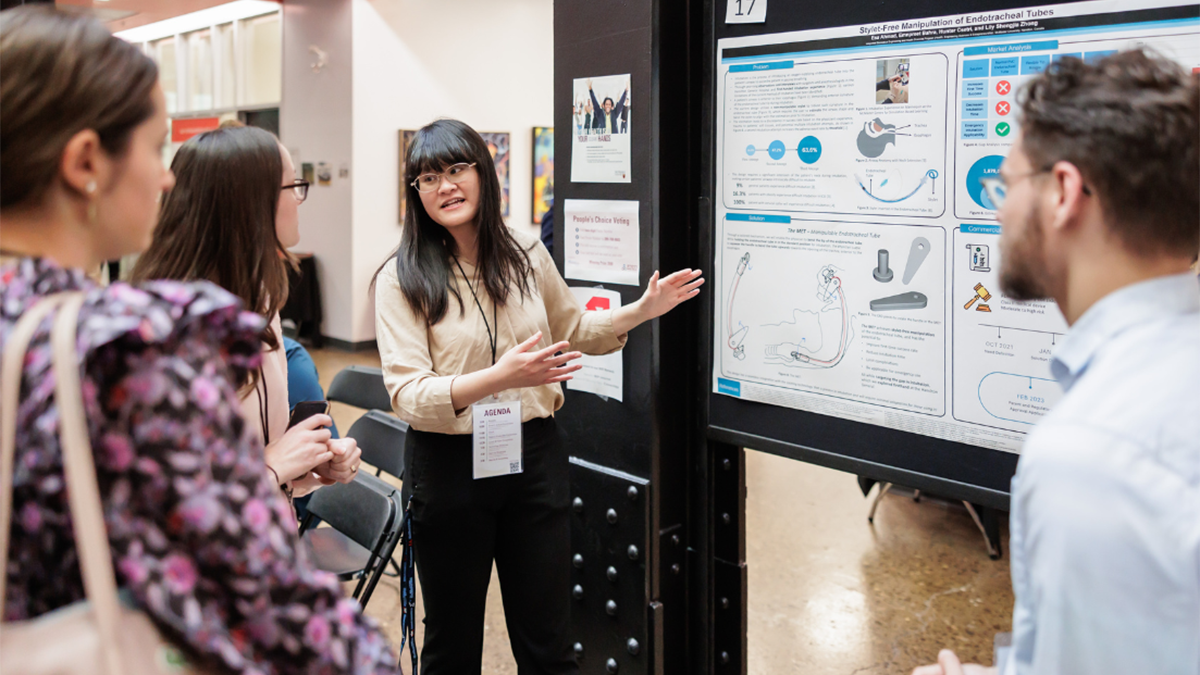Enhancing 2SLGBTQ+ healthcare: Insights from McMaster Pride Month event

June marks Pride Month, a time dedicated to celebrating the history and achievements of the 2SLGBTQ+ community, while also recognizing the ongoing challenges in accessing equitable and culturally safe health care. In the Faculty of Health Sciences (FHS), this month holds special significance as we reaffirm our commitment to creating inclusive environments where everyone is respected and supported.
In honour of Pride Month, Faculty Affairs and the FHS Equity and Inclusion Office hosted an event in collaboration with Rainbow Health Ontario (RHO). This two-part event aimed to enhance participants’ understanding and support of the 2SLGBTQ+ community within health-care settings.
Enhancing knowledge through education
The event kicked off with the 2SLGBTQ+ Foundations Course, developed by RHO. This seven-module online course was designed to equip health care providers and leaders with the foundational knowledge needed to deliver inclusive, affirming care to 2SLGBTQ+ individuals.
Interactive webinar: Deepening understanding
On June 11, an interactive webinar was facilitated by Tanya Neumeyer and Rie Corsame, clinical educators from RHO, who design and deliver training and resources on 2SLGBTQ+ health.
This session allowed participants to delve deeper into key concepts, such as sex, gender, gender identity, gender expression, intersectionality, mental health and inclusive language. Attendees had the opportunity to discuss real-life scenarios and bring forward questions, fostering a rich learning experience.
The interactive webinar provided several valuable takeaways, including the following:
1. Understanding gender and sexuality
Participants explored the concept that sex is assigned at birth and does not equal gender. Gender encompasses both gender identity and gender expression and should be considered a spectrum, rather than a binary concept. This understanding helps dismantle long-standing misconceptions and promotes more inclusive healthcare practices. Participants noted that they found the “Genderbread Person” diagram was a helpful aid in illustrating these concepts.
2. Challenging implicit biases
Implicit biases can impact behaviours, values and attitudes toward 2SLGBTQ+ individuals. By recognizing and addressing these biases, health care providers can create more supportive and affirming environments. Participants shared that moving away from thinking about “good” and “bad” people, to a shared understanding that we all hold biases, was helpful in not getting stuck in personal guilt or overwhelm. One participant shared an experience where another clinician opened up about their fear of making mistakes and the facilitator underscored the importance of cultural humility as a continuous learning process, where open and honest communication can help build trust with patients.
3. Overcoming barriers to healthcare access
Discrimination, verbal assault, stigma and non-inclusive environments and processes continue to be significant barriers to accessing health care for 2SLGBTQ+ individuals. One participant shared their realization of the impact of using non-inclusive language, such as “sir” and “ma’am,” and the importance of avoiding assumptions based on voice or appearance. Another noted the necessity for health care professionals to advocate for more inclusive electronic medical records (EMRs). Practical solutions include adding a preferred name in brackets after the patient’s name and advocating for more permanent changes in EMR systems through OntarioMD.
A valuable resource was shared: Practical tips to make your electronic health records more inclusive of 2SLGBTQ people.
4. Addressing physical health needs
There is no inherent health disadvantage among 2SLGBTQ+ populations. However, stigma and discrimination may lead to coping mechanisms with adverse consequences. The training emphasized the importance of patient-centred care and understanding the unique health needs of each individual.
5. Mental health considerations
The minority stress model (.png) was introduced to explain how external stressors contribute to mental health challenges in 2SLGBTQ+ individuals. This model underscores the importance of supportive health care environments in mitigating these stressors.
6. Embracing intersectionality
An intersectional approach acknowledges the multiple, overlapping identities that shape an individual’s experiences. This perspective helps healthcare providers better understand and address the diverse needs of 2SLGBTQ+ patients who have other marginalized identities (e.g. race, disability etc.).
7. Effective communication
Inclusive communication practices, such as asking patients how they refer to themselves and their body parts, are crucial. This approach fosters trust and ensures that health-care services are respectful and affirming. One participant shared their practice of being transparent with patients about their efforts to use correct names and pronouns, asking for understanding and correction when necessary. Participants also shared experiences of when they wished to be an upstander when witnessing a microaggression but feeling that they did not have the language or framework to do so effectively. Resources were shared to help develop these skills, with an emphasis on this being a journey of learning for us all.
8. Continuing education and commitment
The 2SLGBTQ+ Foundations Course by RHO is available year-round and is open to anyone interested. It is accredited by the College of Family Physicians of Canada and the Ontario Chapter. For more information or to sign up, visit RHO’s 2SLGBTQ Foundations Course.
Additional resources shared during the webinar include:
- 2SLGBTQ Trauma Informed Care Course
- 2SLGBTQ Emotional and Mental Health Course
- Microaggressions in Anesthesiology and Critical Care: Individual and Institutional Approaches to Change
- Ma-Nee Chacaby on Two-Spirit Identities (video)
By continuing to educate ourselves and challenge our assumptions, we can make significant strides in creating a healthcare system that is inclusive, respectful and supportive of the 2SLGBTQ+ community.
This Pride Month, let’s celebrate our progress and commit to furthering our efforts towards equity and inclusion in health care.
This article was written and reviewed in collaboration with Saroo Sharda, associate dean, Equity and Inclusion.
Community & Culture, Equity, Diversity and InclusionRelated News
News Listing

Sonia Anand recognized with HRF Diversity & Equity in Research Award
Awards & Recognition, Community & Culture
20 hours ago

Department of Pediatrics ➚
From seed to success: How philanthropy fuels child health research at McMaster
Community & Culture
6 days ago

Brighter World ➚
Innovation Showcase returns this month to McMaster Innovation Park
Community & Culture
November 5, 2024
